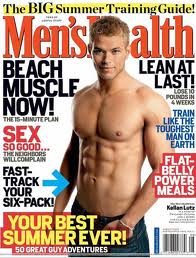For the last couple of weeks the air conditioning in my house has been shot. It started around the time of the epic heat wave in early July and our AC unit isn't that big so I figured it was probably just overcome by the temperature outside. Then there was that day the power company lowered the electrical output to prevent a blackout...yet another reason why my AC might not be doing so hot. I can be a fairly patient person with some things so I figured I would wait out the heatwave and then everything would get back to normal. Unfortunately I was wrong.
 A few nights ago I slept for maybe two hours. The night after that it was the same followed by a third night where I almost didn't sleep at all. F*ckin' sucked, frankly. I'm usually a pretty sound sleeper regardless of noise or stress or whatever else but the one thing that kills me is heat. I can't sleep well in a hot room. Can't do it. The day after that I was so thoroughly sore and exhausted for no good reason that I got in touch with my landlord. Luckily he's a family friend so as soon as he learned of the problem it was handled rather quickly.
A few nights ago I slept for maybe two hours. The night after that it was the same followed by a third night where I almost didn't sleep at all. F*ckin' sucked, frankly. I'm usually a pretty sound sleeper regardless of noise or stress or whatever else but the one thing that kills me is heat. I can't sleep well in a hot room. Can't do it. The day after that I was so thoroughly sore and exhausted for no good reason that I got in touch with my landlord. Luckily he's a family friend so as soon as he learned of the problem it was handled rather quickly.So my landlord shows up and figures out that apparently my room mate had been running the heat (brilliant!!) which had overtaxed the AC unit. As a result, the cooling coil had frozen over and no air could get around it... or something like that. I don't know anything about HVAC so when I was told this my brain starts showing me images of little cartoon wisps of air decked out in everest gear trying to climb a huge block of ice and falling repeatedly all while making sound effects from that video game Lemmings. Occasionally it would swap them for the Ice Climbers from Super Smash Brothers but mostly it was Lemmings. I would love to tell you this internal image was the product of sleep deprivation and hallucinogens. I would really love to tell you that and not be lying.
Long story long, my AC came back on last night and I slept like a baby coddled in cold air. I think I I slept for ten hours and I felt f*cking fantastic when I woke up this morning. My back feels great, my hips feel better (my hips are kind of messed up from kicking things; another story for another day) and my shoulders feel like there was never anything wrong to begin with. Considering the sad state my right shoulder is frequently in these days, it was a pretty amazing shift.
Then I realized that was the first time I'd slept for more than six hours in weeks, maybe months. The only other times I'd slept longer than that were substance induced and, chemically speaking, the rest you get from that type of sleep is hardly comparable to real, GH-drenched REM-full sleep.
I wrote a post a while back about how to recover following a workout. You can find it here. I wrote all this stuff about different substances and therapeutic modalities you could use to help cope with post workout soreness and performance decreases and I included sleep as an afterthought. Seriously. I went back and added sleep in after initially publishing the post which is kind of hilarious. You want to know the keys to post workout recovery?
KEYS TO POST WORKOUT RECOVERY
Listed by hierarchy of importance
1) Sleep (8-10 hours minimum. This is NOT F*CKING DEBATABLE)
2) Nutrition - adequate protein intake (.7-1g/lb of body weight/day) and enough healthy fat and carbohydrates to replenish depleted fuel stores (+ a little more if you're trying to bulk up)
3) Appropriate training volume/incorporate rest days (If you workout 2x a day 7 days a week your issue is not recovery it is complete lack thereof. Training volume should be appropriate and beneficial and should never be high enough to contribute to significant tendon and ligament damage)
4) Active Recovery - MOVE. Moving incorporates temperature therapy by warming up your muscles through activity and increased circulation which increases pliability and range of motion. It incorporates the benefits of compression by flexing and contracting your muscles which has a pumping effect on your lymphatic system and it helps to recover last range of motion by UTILIZING the range of motion.
5) Daily movement and mobility drills - joint mobilizations and exercises specifically designed to increase range of motion. Too expansive of a topic to cover in a couple sentences but MobilityWOD.com is free and can help set you up with a personalized, daily mobility program.
And....yeah. That's pretty much it. I went through all of the other stuff like stretching and icing and NSAIDS in my other post and to a degree they still have their place but they are more for dealing with acute problems or trauma and generally shouldn't be a part of your regular recovery routine. If you need ice and ibuprofen to recover from every workout then you're going way too hard (and you're kind of an idiot for not realizing it already. I mean c'mon.) So now that I've highlighted the importance of sleep I want to talk about something that happened while I was sleep deprived.
So I went for a run. It was awful. Really awful. Poison ivy on a sunburn awful.
About seven minutes in my entire body was like, "yo dawg what the f*ck? This ain't what we signed up for yo! This is bullsh*t, we're out." Luckily by that point I was only about a minute away from my house so I hoofed it back. I was dizzy, out of breath, my head hurt and I had trouble seeing straight. Honestly my first reaction was, "I'm in terrible shape," and I got pretty f*ckin' angry at myself. I'm supposed to be some paragon of fitness hollering at other people to work harder and go faster and here I'm borderline hugging a bucket after running less than a mile? Pathetic. Truly Pathetic. Then I checked my mileage. For reference, I stopped my running clock at 8:27.
I ran a mile and a half.
 Somehow in my sleep deprived stupor I ran a mile and a half at a 5:40/mile pace. I am not a runner. Never have been. I enjoy running and go through spats of heavy mileage for a few months at a time but I'm hardly one of those people who laces up their running shoes even if theres a hurricane/tornado/baby-eating alien invasion conspiring to prevent your workout. If I couldn't find my Ipod before a run I'd be like well, I guess I should just jump rope and hit the bag. At least I've got a round timer here. Right, good excuse Bob. You godd*mned pansy.
Somehow in my sleep deprived stupor I ran a mile and a half at a 5:40/mile pace. I am not a runner. Never have been. I enjoy running and go through spats of heavy mileage for a few months at a time but I'm hardly one of those people who laces up their running shoes even if theres a hurricane/tornado/baby-eating alien invasion conspiring to prevent your workout. If I couldn't find my Ipod before a run I'd be like well, I guess I should just jump rope and hit the bag. At least I've got a round timer here. Right, good excuse Bob. You godd*mned pansy.Point being I've never run a mile that fast in my entire life. To be quite honest a 5:40 mile isn't extraordinarily fast for people who RUN but I'm not one of them. Hence my overwhelming desire to deposit my breakfast in a toilet following my little jaunt. That being said, despite my somewhat impressive performance I felt like I was going to die for the remainder of the day. My back hurt, my hips ached, even my shoulders were sore. I went from fitness paragon to elderly war veteran and all it took was eight minutes of physical activity. Honestly sleeping for ten hours and waking up with all of those sensations gone was what drove me to write this post as it personally re-acquainted me with the truly restorative powers of good sleep.
It is true that we all need different amounts of sleep: everyone's biology is different. This fact is not an excuse to sleep four hours a night and claim that's all your body needs. I think we unfortunately pride ourselves on doing too much. We look up to the people who run a business and a family while still maintaining their health and fitness along with several intense and impressive hobbies. We always say there aren't enough hours in the day and the easiest way to change that is by reducing how much we sleep. We then intellectualize it and explain it away by saying well I don't ever feel tired so I must not need the sleep. You're wrong. The reality is that you've adapted and your body is making do. Our bodies are capable of making some extreme adaptations for the sake of survival. That is not an excuse to force them to do so unnecessarily. Don't believe me? How about another list. People like lists.
Why Sleep Deprivation is BAD:
 1) Sleep Debt - Sleeping only an hour or two less than your body requires per night over the course of a week puts your body in the same biochemical state as if you had not slept for 24 hours and it can not be remedied with a single night of sleep.
1) Sleep Debt - Sleeping only an hour or two less than your body requires per night over the course of a week puts your body in the same biochemical state as if you had not slept for 24 hours and it can not be remedied with a single night of sleep.
2) Insulin sensitivity - Again, if you sleep only 1-2 hours less per night than you're supposed to you have significantly increased blood sugar levels. lack of sleep interferes with your bodies ability to recognize and metabolize sugar which significantly impairs athletic performance and may lead to insulin resistance.
3) Decreased GH - Our GH production peaks during our REM cycles. Fewer REM Cycles --> less GH --> less recovery, more fat, less muscle mass and less of the numerous benefits that growth hormone provides.
4) Decreased alertness/awareness, decreased mental acuity and cognitive performance.
5) Weight gain - lack of GH hormone release and insulin sensitivity combined with decreased energy levels and mental focus can lead to secondary weight gain - I'm not sure of whether or not lack of sleep can cause weight gain in and of itself.
So the important thing to note is that while these things will all occur from a single night of missed sleep, it is unlikely you will feel the effects from just a one or two hour deficit. It's chronic sleep deprivation that's really bad and also something that most of us, especially the really driven career focused individuals among us are both susceptible too and likely suffering from. Remember, just because you can do it doesn't mean it's optimal and Becoming Invincible isn't about surviving, it's about maximizing our human potential. What's the point of giving your body the appropriate stimulus for beneficial physical remodeling (exercise), all of the best materials for the remodeling (nutrition) and then giving yourself less than ample time to actually PERFORM the remodeling? Muscle grows in your bed, not while you're in the gym. Don't shortchange your progress by overlooking a simple and often easily remedied issue. I mean, come on, who doesn't like a little extra sleep?
Oh, one last thing. On the topic of my increased performance during a period of exhaustion I read a paper recently that somewhat addressed this issue. The paper investigated performance differences in cyclists who were exposed to extreme temperature (100+ degrees) and extreme fatigue (24 hours without sleep). Interestingly enough the findings were that the heat exposed group's performance was significantly worse than both the control and the sleep deprived group. The sleep deprived group, on the other hand, actually exhibited slightly improved performance over the control with an interesting alteration: despite their ACTUAL performance they all BELIEVED they were doing terribly. In other words while a single bout of exhaustion may not significantly affect your individual performance, it will likely significantly inhibit your ability to judge how well you're doing.
All I would say is this - while it is clearly obvious that losing sleep for a single night may not affect your performance in a single competition, prolonged sleep deprivation and exhaustion will slowly shut down your ability to progress. Remember, working out is not about a single performance; it's about steady, measurable progress over time and progress requires adequate rest. Now go get your sleep on. (Or if you're one of those weirdos with a 9-5 do it tonight...just...not too late, all right?)
Good luck and good lifting.
Cheers.


































